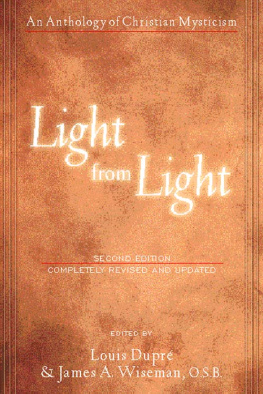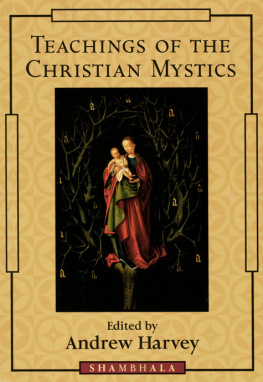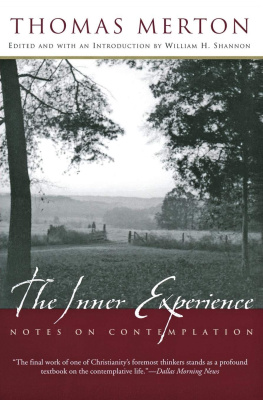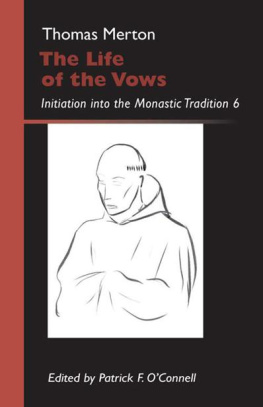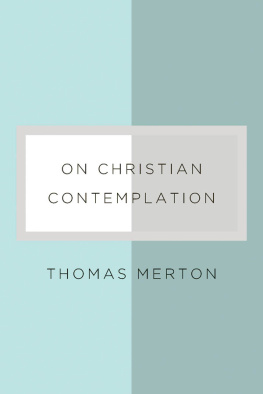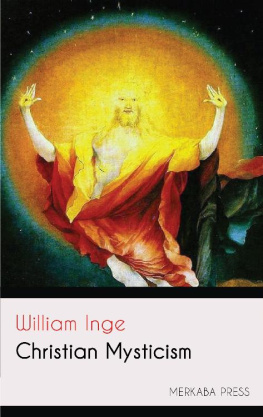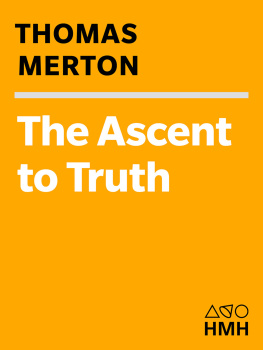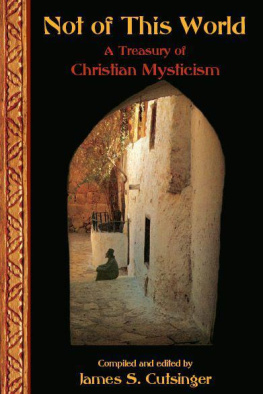Louis Dupré - Light from Light: An Anthology of Christian Mysticism
Here you can read online Louis Dupré - Light from Light: An Anthology of Christian Mysticism full text of the book (entire story) in english for free. Download pdf and epub, get meaning, cover and reviews about this ebook. year: 2001, publisher: Paulist Press, genre: Religion. Description of the work, (preface) as well as reviews are available. Best literature library LitArk.com created for fans of good reading and offers a wide selection of genres:
Romance novel
Science fiction
Adventure
Detective
Science
History
Home and family
Prose
Art
Politics
Computer
Non-fiction
Religion
Business
Children
Humor
Choose a favorite category and find really read worthwhile books. Enjoy immersion in the world of imagination, feel the emotions of the characters or learn something new for yourself, make an fascinating discovery.
- Book:Light from Light: An Anthology of Christian Mysticism
- Author:
- Publisher:Paulist Press
- Genre:
- Year:2001
- Rating:4 / 5
- Favourites:Add to favourites
- Your mark:
- 80
- 1
- 2
- 3
- 4
- 5
Light from Light: An Anthology of Christian Mysticism: summary, description and annotation
We offer to read an annotation, description, summary or preface (depends on what the author of the book "Light from Light: An Anthology of Christian Mysticism" wrote himself). If you haven't found the necessary information about the book — write in the comments, we will try to find it.
Louis Dupré: author's other books
Who wrote Light from Light: An Anthology of Christian Mysticism? Find out the surname, the name of the author of the book and a list of all author's works by series.
Light from Light: An Anthology of Christian Mysticism — read online for free the complete book (whole text) full work
Below is the text of the book, divided by pages. System saving the place of the last page read, allows you to conveniently read the book "Light from Light: An Anthology of Christian Mysticism" online for free, without having to search again every time where you left off. Put a bookmark, and you can go to the page where you finished reading at any time.
Font size:
Interval:
Bookmark:
Light from Light
An Anthology of Christian Mysticism
Second Edition Completely Revised and Updated
Edited by Louis Dupr and James A. Wiseman, O.S.B.

Paulist Press
New York/Mahwah, N.J.
Book design by Theresa M. Sparacio
Cover design by Cynthia Dunne
Copyright 2001 by James A. Wiseman and Louis Dupr
All rights reserved. No part of this book may be reproduced or transmitted in any form or by any means, electronic or mechanical, including photocopying, recording or by any information storage and retrieval system without permission in writing from the Publisher.
Library of Congress Cataloging-in-Publication Data
Light from light : an anthology of Christian mysticism / edited by Louis Dupr and James A. Wiseman.2nd ed., completely rev. and updated.
p. cm.
Includes bibliographical references.
EISBN 978-1-61643-075-7
1. Mysticism. I. Dupr, Louis K., 1925 II. Wiseman, James A., 1942
BV5072 .L54 2001b
248.2 ? 2dc21
00-068462
Published by Paulist Press
997 Macarthur Boulevard
Mahwah, New Jersey 07430
www.paulistpress.com
Contents
Light from Light has been in print for well over a decade, and its editors remain grateful for the friendly reception of a project that grew out of a practical need. But as the years have passed, readers, the publisher, and indeed the editors themselves felt that it could be improved. The bulky format of the original edition, with its wide pages and long lines, made reading uncomfortable. A quick poll taken among some of its readers revealed what the original preface had predicted, that satisfaction with the choice of the selections was not universal. Recommendations from the poll were sufficiently specific, though by no means unanimous, to allow us to make some changes. Spiritual writers of late seventeenth- and early eighteenth-century France found little response from contemporary Americans, so we omitted Fnelon, Jeanne Guyon, and Marie of the Incarnation, though not without pain and in anticipation of future protests. Some authors failed to invite readers because readers hardly recognized their names. Such was regrettably the case with William Law and, in our time, Henri Le Sauxsurprisingly also with Maximus the Confessor.
On the opposite side, some readers expressed dissatisfaction with the absence of Francis and Clare of Assisi, while others missed the saintly fellowship of Francis de Sales and Jeanne de Chantal. They were right, and we hasten to remedy the omissions. Having made the changes, however, we realize that they may displease some readers. No one will be entirely satisfied with a limited choice, but all may take comfort in the fact that the absence of any anthology of this sortwhich originally motivated our workis no longer a problem. Since the anthologies now available differ in their choice of subjects as well as of excerpts, others may complement what ours does not offer.
The inclusion of such writers as Francis de Sales, Jeanne de Chantal, and Evelyn Underhill in the present edition raises again, and more urgently, the question of the principle of selection. These authors may never have enjoyed the kind of extraordinary experiences that we have come to associate with the term mysticism. As we pointed out in the original General Introduction and do so again in the present one, such experiences were never the norm for inclusion, since this would have excluded most spiritual writers of the patristic and medieval epochs. An intense spiritual concern expressed in mostly non-confessional writings determined the past use of the term. Today the term spirituality might render the ancient meaning more accurately, but we have preferred to retain the original subtitle of our anthology for the sake of continuity. We have likewise retained the general format of the first edition, with chapter introductions placing each selection in context within the Christian mystical tradition and selected bibliographies, now updated, pointing the reader to further resources.
Finally, we express our sincere thanks to all who made recommendations for improving the first edition of this anthology, and to Donald Brophy, Theresa Sparacio, and their associates at Paulist Press for their assistance in our work of revision.
I. Mysticism and Christian Mysticism
Reading mystical writerseven if they are mediocre stylists, poorly educated, and separated from us by antiquated theologies and questionable methods of exegesismay be an illuminating experience. It allows a rare glimpse of that mystery that surrounds our entire existence. For a Christian, the translation of doctrine into experience or even into theory about experience may also mean a homecoming into his or her faith. But what counts as a mystical text? The answers have varied from being almost indefinably comprehensive to being almost inapplicably restrictive. No definitive answer has presided over our choice. The history of the term itself has proven to be too slippery to provide hard and fast answers. The adjective mystikos, derived from Greek mystery cults, through the Alexandrian writers Clement and Origen, hesitantly found its way into the Christian vocabulary. The objective quality of the original concept, so different from our own emphasis upon private experience, persists through the sixth century. Mystical applies to the hidden (Christian) meaning of the Old Testament, to the hidden presence of Christ in the Eucharist, and eventually to the universal Christian experience of Gods presence in scripture and in the world around us. All these meanings convey the idea of a reality concealed by surface appearances but accessible to all Christians. Indeed, I doubt whether before the late Middle Ages the word ever referred to a purely private, inner experience. The meaning continues to shift through the Middle Ages so much that few authors here presented would have agreed on a common definition before the end of the Middle Ages, and none would have used the one common today of a secret knowledge communicated in an extraordinary, personal experience.
Only toward the end of the Middle Ages, when spiritual life itself became marginal to (a still publicly religious) society, did the term move toward the highly individual, subjective meaning we tend to regard as its very essence. Thus Chancellor Gerson, somewhat ahead of his time, defined it as cognitio experimentalis de Deo. The last two centuries (at least in Western Christendom) have narrowed that meaning further to an extraordinary grace granted to those who directly experience the divine presence. However questionable one may find those restrictions, we editors writing for a modern public have to take them into account. This decision, in turn, creates further complications. For who, by the subjective norms now prevailing, deserves to be included? Clearly, compromises are inevitable, and we had to include much, indeed most, of what was written according to very different definitions of the term mysticaland yet with some relation to the modern, private, contemplative conception. This strategy forced us to forgo any judgment concerning a writers private experience and, even more, concerning the natural or supernatural quality of what he or she describes. Few of the writers here presented ever appeal to personal experience. Instead, they articulate various theories of Gods presence to the soul that we have come to describe as mystical, but which in most cases they themselves never even considered in the light of the private, subjective, or extraordinary experience we attach to the meaning of the term. It remains generally true that mystical texts place a greater emphasis upon the communally or individually
Next pageFont size:
Interval:
Bookmark:
Similar books «Light from Light: An Anthology of Christian Mysticism»
Look at similar books to Light from Light: An Anthology of Christian Mysticism. We have selected literature similar in name and meaning in the hope of providing readers with more options to find new, interesting, not yet read works.
Discussion, reviews of the book Light from Light: An Anthology of Christian Mysticism and just readers' own opinions. Leave your comments, write what you think about the work, its meaning or the main characters. Specify what exactly you liked and what you didn't like, and why you think so.

